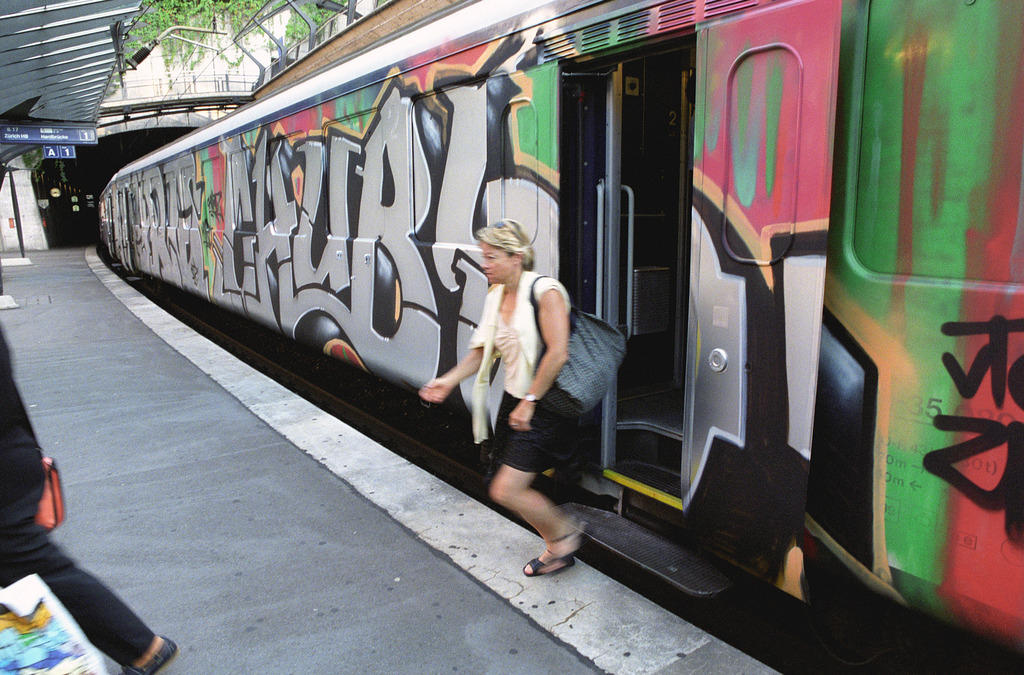
Graffiti removal costs Swiss railways millions

Vandalism of railway carriages and infrastructure by graffiti cost The Swiss Federal Railways CHF5.4 million ($5.48 million) in 2017.
This is an increase compared to the year before (little over CHF5 million) but less than the all-time record in 2015 when the clean-up bill reached CHF6.3 million.
According to the company, “the aim of the sprayers is to make their graffiti visible to as many people as possible. This is why railway carriages are a privileged platform for them”. The videos and photos of graffiti disseminated by the media provoke imitators, the operator said on Thursday.
The company removes sprayed vehicles from circulation within 24 hours if possible in order to avoid encouraging other vandals to follow suit. The trains affected are transferred to a workshop for cleaning which can take dozens of hours for a completely sprayed train. According to the firm, the costs passed on to voyagers through either higher ticket prices or taxes.
Apart from courting death, the graffiti sprayers are liable to prosecution and convicted sprayers “suffer financial difficulties”, said the rail operator.

More
A special carriage where schoolchildren are taught vandalism prevention

In compliance with the JTI standards
More: SWI swissinfo.ch certified by the Journalism Trust Initiative






























You can find an overview of ongoing debates with our journalists here . Please join us!
If you want to start a conversation about a topic raised in this article or want to report factual errors, email us at english@swissinfo.ch.